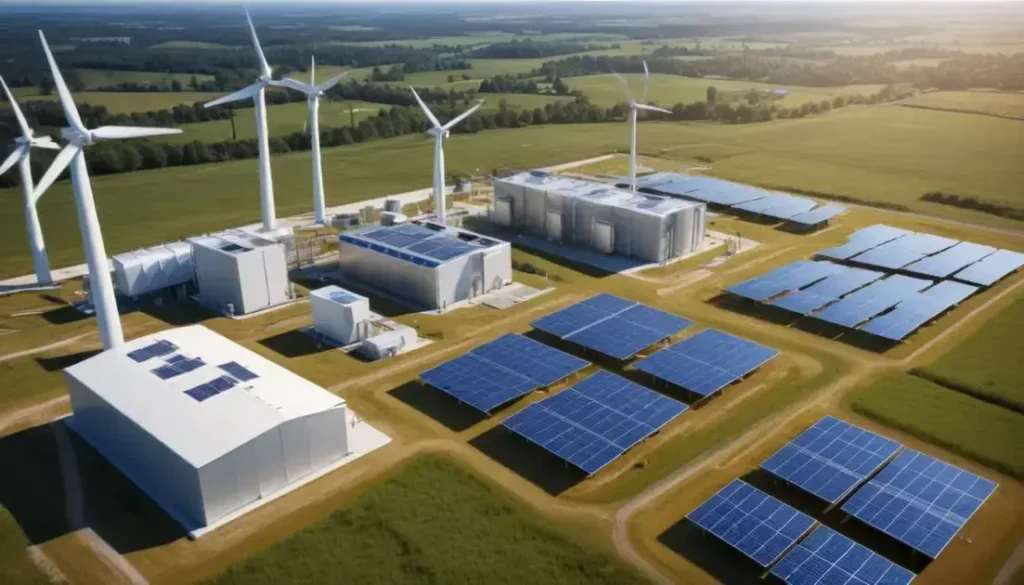The acquisition of WK Kellogg Co by Ferrero enhances sustainability initiatives, promotes innovation in product offerings, and positions UK businesses to adapt to evolving consumer demands, ensuring better market competitiveness.
In a significant shift for the food industry, sustainability emerges as central to Ferrero’s acquisition of WK Kellogg Co, reshaping the market landscape.
Overview of Ferrero’s acquisition strategy
The acquisition strategy of Ferrero is a pivotal move aimed at strengthening its position in the global food industry. By acquiring WK Kellogg Co, Ferrero leverages the historic brands, enhancing its product portfolio and expanding market reach. This approach not only diversifies their offerings but also allows for greater economies of scale.
Furthermore, the acquisition brings the opportunity to integrate sustainable practices within Kellogg’s operations. Ferrero is committed to sustainability, and this transition aims to improve not only production efficiencies but also the overall environmental impact of their supply chains.
With the rise in consumer demand for sustainable products, the merger enables Ferrero to meet these changing market trends head-on. It provides a platform for innovation through shared resources and technology transfer, essential for responding to modern consumer concerns.
Overall, Ferrero’s acquisition of Kellogg serves as a strategic enhancement, aligning with long-term goals focused on sustainability, brand heritage, and market leadership. This merger exemplifies a trend within the food industry, where companies are increasingly prioritising sustainability as part of their core operations.
Impact on supply chain sustainability
The acquisition of WK Kellogg Co by Ferrero significantly influences supply chain sustainability. By merging operations, Ferrero integrates sustainable practices that can reduce environmental footprints. Both companies share a commitment to sourcing materials responsibly, which is vital in today’s eco-conscious market.
As Ferrero adopts Kellogg’s existing sustainability frameworks, benefits will emerge in terms of energy efficiency and waste reduction. Implementing integrated systems allows for better resource management, ensuring that products are created with less environmental impact.
Moreover, the shared expertise between Ferrero and Kellogg enhances innovations in sustainable packaging. Transitioning towards more eco-friendly packaging solutions aligns with consumer expectations and regulatory requirements. This not only retains customers but also fosters a positive brand image.
The collaboration also enables the utilisation of advanced technologies to improve logistical efficiency. Investments in technology support data-driven decisions that enhance overall supply chain transparency, ensuring that sustainability targets are met effectively.
In summary, Ferrero’s acquisition presents an excellent opportunity to lead in sustainable supply chains, demonstrating that harmonizing business goals with environmental responsibilities is achievable. This strategy is essential for maintaining competitive advantages and securing consumer trust in the evolving global landscape.
Consumer trends and market changes
Consumer trends are rapidly evolving, significantly impacting the food industry. With an increasing focus on sustainability, consumers are prioritising brands that demonstrate a commitment to ethical practices. This shift pressures companies like Ferrero and Kellogg to adapt their offerings and marketing strategies.
Moreover, a rise in health-conscious consumers has led to a demand for clean label products. Shoppers are seeking transparency regarding ingredients, which now play a pivotal role in purchasing decisions. Brands that provide clear, honest communication about their products are more likely to gain consumer trust and loyalty.
Social media has transformed how consumers interact with brands, influencing purchasing choices and creating conversations around product values. Engaging storytelling and authentic brand narratives resonate well with today’s audience. Companies that effectively leverage these platforms can enhance consumer engagement and loyalty.
The impact of the COVID-19 pandemic has also accelerated changes in consumer behaviour. Many shoppers now prefer online shopping and are more inclined to explore e-commerce options for their grocery needs. This shift challenges traditional retail models and encourages brands to invest in digital transformation.
Finally, demographic shifts, including the rise of younger, mindful consumers, require brands to reassess their market strategies. Understanding these consumer trends is crucial for businesses looking to thrive in an increasingly competitive landscape.
Integration of WK Kellogg Co’s infrastructure
The integration of WK Kellogg Co’s infrastructure into Ferrero’s operational framework marks a significant milestone in their merger strategy. This process aims to streamline production and enhance efficiency across all stages of supply chain management. By leveraging shared resources and technologies, Ferrero can optimise workflows and reduce operational costs.
One of the key aspects of this integration is the ability to align manufacturing processes. Ferrero can implement its innovative practices within Kellogg’s existing facilities, resulting in improved productivity. This synergy not only increases output but also ensures that sustainability initiatives are uniformly applied.
Furthermore, the collaboration amplifies the potential for product innovation. With access to Kellogg’s extensive portfolio, Ferrero can explore new flavour combinations and healthier options. This initiative responds directly to rising consumer demand for diverse and nutritious food choices.
Data integration is also essential. Ferrero plans to enhance data-sharing initiatives between the two companies, fostering better insights into consumer preferences and market trends. Equipped with this knowledge, the combined entity can respond more quickly to shifts in demand.
In summary, the successful integration of WK Kellogg Co’s infrastructure is crucial for Ferrero. It promises to create a more resilient, efficient, and responsive organisation, ultimately benefiting consumers and stakeholders alike.
Financial implications for Ferrero
The financial implications of Ferrero’s acquisition of WK Kellogg Co are significant and multifaceted. This strategic move is expected to bolster Ferrero’s market share, allowing it to tap into Kellogg’s established customer base and diverse product range. An increase in revenue is anticipated as Ferrero diversifies its offerings and attracts new customers.
Moreover, the integration of Kellogg’s assets enables Ferrero to achieve operational efficiencies. Streamlining supply chain processes and consolidating manufacturing facilities can lead to substantial cost savings. By utilising Kellogg’s existing distribution networks, Ferrero can optimise logistics, thereby reducing overhead costs.
Investors will closely monitor how this acquisition affects Ferrero’s profitability in the long run. Increased operational efficiency should enhance profit margins, contributing positively to the bottom line. However, the initial costs associated with the acquisition, such as legal fees and integration expenses, may present short-term challenges.
Additionally, the move may attract attention from financial analysts assessing potential risks and benefits. The success of this acquisition hinges on Ferrero’s ability to effectively manage integration while upholding its brand values and commitment to sustainability.
In conclusion, the financial implications of this acquisition are complex but could pave the way for significant growth and improved market positioning for Ferrero in the competitive landscape.
Sustainability initiatives post-acquisition
Post-acquisition, Ferrero is set to advance its sustainability initiatives, building on WK Kellogg Co’s existing practices. The integration is aimed at enhancing environmental responsibility across all operations. This shift is crucial in meeting the growing consumer demand for eco-friendly products and practices.
One major initiative involves transitioning towards sustainable sourcing. Ferrero plans to collaborate with suppliers who adhere to ethical practices, ensuring that ingredients are sourced responsibly. This not only supports environmental goals but also strengthens the company’s brand reputation among increasingly conscious consumers.
Additionally, Ferrero intends to invest in innovative packaging solutions. Efforts will focus on reducing plastic use and adopting biodegradable materials. By enhancing packaging sustainability, Ferrero aligns itself with consumer preferences while contributing to global waste reduction efforts.
Moreover, the company aims to implement energy-efficient processes in manufacturing. This includes optimising production lines to reduce emissions and enhance resource management. Such measures will not only lower operational costs but also diminish the overall environmental impact.
Through these sustainability initiatives, Ferrero positions itself as a leader in responsible business practices. The post-acquisition phase presents a unique opportunity to elevate its environmental commitments while ensuring long-term business success.
Future outlook for UK businesses
The future outlook for UK businesses is poised for transformation, particularly in light of the recent acquisition of WK Kellogg Co by Ferrero. This strategic move is expected to generate ripple effects across various sectors, especially in food and consumer goods. As companies adapt to new market dynamics, agility and innovation will be essential for growth.
One major aspect shaping the landscape is the increased focus on sustainability. UK businesses are being driven to adopt greener practices not only due to consumer demand but also to comply with stricter regulations. Companies that prioritise sustainable initiatives may find a significant competitive advantage.
Advancements in technology will also play a crucial role. The integration of digital tools into operations can enhance efficiency and customer engagement. Businesses leveraging data analytics will better understand consumer behaviour, enabling them to tailor offerings to meet evolving preferences.
Moreover, the post-Brexit environment presents both challenges and opportunities. Companies must navigate new trade regulations while seeking to strengthen relationships within the global market. By doing so, UK businesses can enhance their resilience and competitiveness.
Overall, a forward-looking approach that embraces sustainability, technology, and adaptability will be key to thriving in the changing business landscape of the UK.
In Summary: Embracing Change in the Food Industry
The acquisition of WK Kellogg Co by Ferrero marks a significant shift in the food industry, highlighting the importance of adaptation and innovation for businesses today.
As we have seen, focusing on sustainability and leveraging technology is essential for staying competitive. Companies that embrace these changes can not only enhance their operational efficiency but also build stronger connections with consumers.
The future for UK businesses looks promising, provided they continue to respond to evolving consumer demands and market dynamics. By prioritising sustainability and innovation, businesses can thrive in an ever-changing environment.
Ultimately, the successful merger between Ferrero and Kellogg serves as a reminder that the best way forward is through collaboration and a commitment to responsible practices, paving the way for a brighter future in the industry.
Frequently Asked Questions
What impact does Ferrero’s acquisition of Kellogg have on sustainability?
Ferrero aims to enhance its sustainability initiatives by integrating Kellogg’s practices, focusing on sustainable sourcing and eco-friendly packaging.
How will this acquisition affect UK businesses?
UK businesses may experience shifts in market dynamics as Ferrero’s strategies promote innovation and sustainability, which can lead to greater competition.
What innovations can we expect from Ferrero after the acquisition?
We can anticipate advancements in product offerings, particularly in health-conscious and sustainable food options that cater to changing consumer preferences.
How is technology influencing Ferrero’s integration strategy?
Ferrero plans to leverage technology for data integration and operational efficiency, enhancing insights into consumer behaviour and market trends.
What are the potential financial outcomes of this merger?
The merger is expected to lead to increased revenue, improved profit margins through operational efficiencies, and overall growth for Ferrero.
How can UK businesses prepare for the future based on these changes?
Businesses should focus on embracing sustainability, adopting new technologies, and staying agile to adapt to evolving consumer needs and market trends.


